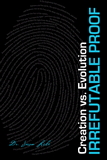
'But if Creation Is True, Why don't All Scientists Believe it?'
Originally published in Creation 16, no 3 (June 1994): 42-43.
When I discuss the creation/evolution controversy, there are all sorts of interesting responses to the evidence. People are basically unable to answer the powerful logical and scientific case for creation. So, many eventually say something like this:
But if creation is true, why don’t all scientists believe it? All scientists agree that evolution is true.
Others do not say this outright, but it is an unspoken criticism which they see as an automatic veto of anything that seems scientifically unorthodox.
Can the majority be wrong?
Most people admit that the general public may be in error. But they doubt that the majority of scientists could be wrong. This implies that science is somehow different from other human enterprises, and that scientists are immune to the foibles of non-scientists.
History shows that the scientific establishment has been wrong time after time.
History shows that the scientific establishment has been wrong time after time. It is unwise to bet your life on any scientific theory, no matter how popular it is. In fact, often those who have consciously sought safety by staying in the middle of the herd have ended up, like lemmings, in the middle of a stampede off an intellectual cliff.
Saves lives
Hungarian physician Ignaz Semmelweis (1818–1865) found that by washing his hands between the time he examined dead bodies and the time he delivered babies, he could prevent certain illnesses in mothers and babies, and save many lives. He was appalled by the heavy death rate in Vienna maternity hospital when he worked there. He introduced antiseptics, and the death rate plummeted from 12 per cent to 1.5 per cent.
Even though Semmelweis should have been declared a hero for this simple but powerful discovery, he was not. He was not even asked for his data. Rather, his idea was soundly rejected by his colleagues, and he was forced to return to his home in Budapest.
Germs had not yet been discovered, and the physicians of that day had no theoretical basis for understanding the phenomenon Semmelweis was talking about. Even so, the idea would have been easy to test and was clearly of great potential importance. But they did not even consider it.
If we had quizzed the ‘dirty hands’ doctors at a particularly frank and honest moment, they may have said: ‘It just doesn’t make sense. If I can’t see it, it must not be real.’ Or, ‘What I don’t know can’t hurt me (or my patients).’ Or worse yet, they might have said, ‘If I admit to this, I will have to accept responsibility for untold past preventable suffering.’
Our past decisions may prejudice our ability to evaluate the present. A scientist who has based his career on calculating what happened during the first few moments of the ‘big bang’ will find it difficult to be open to evidence that the ‘big bang’ never happened. Great learning does not always make a person more honest and accessible, but it may increase the complexity of his or her rationalizations.
A young graduate student who believes in creation, but also knows that rejection of evolution would jeopardize his degree and career, may try to work out some intellectual compromise, whether it fits the data or not. (This is essentially a form of protective colouration which makes his beliefs invisible in that environment.) He is then likely to spend the rest of his professional life ‘agreeing with himself’. He may even ridicule those more forthright than he, partly because they prick his conscience.
Responsible to Creator
Many scientists hold firmly to evolution despite the evidence. They know that without evolution they must consider themselves responsible to a creator. Their need to reject that possibility is so emotionally powerful that they hang on to evolution tenaciously.
Most of us assume the best about our fellow humans unless forced to think otherwise. Have you ever read a newspaper account of an event you know by personal experience, and found the story inaccurate or incomplete? You then probably wondered about the accuracy of other stories in the paper.
Even though the scientific method is supposed to encourage objectivity, some data get recorded and some get ignored, some articles get published and some get rejected—a lot depends on the very human motives of individual people. Even looking at the same data and the same articles, different observers can come to different conclusions.
Great breakthroughs in science are not achieved only by the brilliant. They are shared by the honest and courageous who study the emperor’s new clothes and regard truth as more important than political correctness or a grant for further study. This does not mean that someone outside the herd is automatically right. But proper conclusions may be opposed by scholars with ulterior motives.
At one time or another, most children probably say to their parents (in support of some questionable activity), ‘But everybody’s doing it!’ Good Christian parents invariably say, ‘No, they’re not! But even if they were, you’re not, because it’s against what God wants for you, so it’s wrong.’
We should therefore become a bit wary if someone says, ‘But everybody knows. . .’, or ‘All scientists agree. . .’. They probably don’t. And even if they did, it might still be wrong.
Recommended Resources

Answers in Genesis is an apologetics ministry, dedicated to helping Christians defend their faith and proclaim the good news of Jesus Christ.
- Customer Service 800.778.3390
- Available Monday–Friday | 9 AM–5 PM ET
- © 2026 Answers in Genesis




